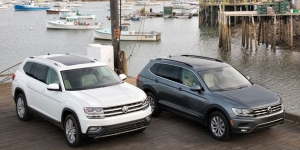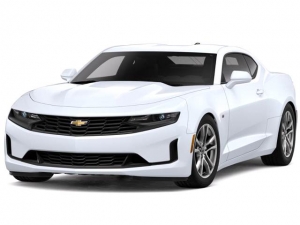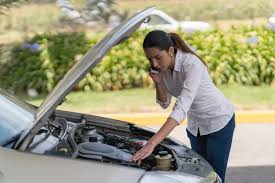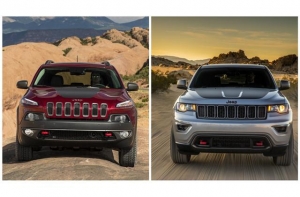
Many consumers are under the impression that they need to do more, be more proactive, and/or take more concrete stepsin order to secure the rights to which they are entitled under California’s Lemon Law.
Manufacturers are happy to instill this belief into consumers and keep this misconception alive. Indeed, automobile companies’ owner’s manuals that come with new cars are littered with misrepresentations that imply that a consumer must first demand a buyback in a certain way or participate in the manufacturers’ desired arbitration program in order to be entitled to and obtain relief.
This is not so.
California caselaw has established that that the only thing a consumer needs to do in order to be entitled to the remedies under the Lemon Law is to provide the manufacturer with a “reasonable opportunity” to repair the vehicle. In the case of Oregel v. American Isuzu Motors, Inc., (2001) 90 Cal.App.4th 1094, the California Appellate Court made it clear that “the only affirmative step the Act imposes on consumers is to ‘permit[] the manufacturer a reasonable opportunity to repair the vehicle.’ Whether or not the manufacturer’s agents choose to take advantage of the opportunity, or are unable despite that opportunity to isolate and make an effort to repair the problem, are matters for which the consumer is not responsible.”
In other words, if you have had the misfortune of purchasing a defective product or vehicle, the only thing you need to do is give the manufacturer a “reasonable opportunity” to fix the problem. If after a “reasonable opportunity” the product or vehicle has not been fixed, then you are entitled to have the product repurchased. As the law sees it, you as the consumer should not have to continue to undergo the burden of dealing with the defective product which is not what you bargained for; after a certain amount of time or attempts it should be the manufacturer’s problem and not yours.
- So what is a “Repair Opportunity”?
The manufacturer or its dealership doesn’t actually have to perform work on a vehicle for a repair attempt to be considered an “opportunity” under the law. Parts do not have to be replaced. Extensive repair efforts do not have to be performed. As the language of the Oregel decision made clear, what the manufacturer chooses to do with the opportunity to fix the problem when a consumer brings in a defective product for repairs to a dealership is not something that can be held against the consumer. Your only obligation is to give them the chance to fix your problem.
Dealerships are often instructed to write up repair records in a manner which protects the manufacturer. Oftentimes, the same exact language of “vehicle operating as designed/no defects in material or workmanship found/could not duplicate problem” appear on dealership repair records no matter the manufacturer or dealership. This is because manufacturers want to try and protect themselves from a Lemon Law claim and believe using such language will prevent consumers from pursuing claims. Manufacturers and their dealerships attempt to create an illusion of not having been given an opportunity to fix the problem. But if you have given them the opportunity to fix the problem and all they squandered that opportunity that should not be held against you as the consumer.
Many consumers will be frustrated away from filing a Lemon Law lawsuit because of manufacturers have done a good job of making consumers believe they haven’t provided the appropriate opportunity.
- How Many Repair Opportunities is Considered a Reasonable Number?
Many consumers mistakenly believe that there is a specific number of visits that is required under California’s Lemon Law. The Law Offices of Michael Devlin receive calls from prospective clients all the time wherein the individual believes they do or do not have a case because they have or have not presented the vehicle for repairs three, four, or five times – whatever a friend, family member, or even dealership personnel may have mistakenly informed them was required.
But what is considered a “reasonable number” of repair opportunities is case-specific. What is reasonable in one case for one type of problem may not be the same threshold for what is considered reasonable/unreasonable in another set of circumstances. It is for this reason that the law does not list a specific number. Even though the Lemon Law does not list a specific definition of what number is the threshold that crosses over to a “reasonable” number, there is certain guidance both in the Lemon Law itself and appellate courts interpretation of the law establishing precedent.
Generally speaking, because the law requires a vehicle be repurchased if not repaired after a reasonable number of attempts and because the word “attempts” is plural, courts have determined that there must be at least two visits. Otherwise, it stands to reason, the California Legislature wouldn’t have drafted the Lemon Law using a word that is plural. As a result, most cases will require more than one visit. However, if the manufacturer or its dealership for whatever reason refuses to attempt to fix the problem at the first visit, a second attempt may not be required to be considered “reasonable” in the facts of that case.
Additionally, because manufacturers were using the vagueness within the Lemon Law to their advantage and not offering assistance to consumers as often as the Legislature had intended, several years after the original Lemon Law was drafted, the California Legislature passed The Tanner Consumer Protection Act which became a portion of the California Lemon Law that provided a rebuttable presumption as to what number would be presumed to be reasonable.
Accordingly, pursuant to the Tanner Act, under California’s Lemon Law, it is presumed to be a “reasonable number of repair opportunities” if during the first eighteen (18) months or 18,000 miles on the odometer, whichever comes first, a vehicle is either (a) presented two or more times for a defect that could cause death or serious bodily injury, or (b) the dealership has tried to repair the same defect four times.
With the passing of the Tanner Act which defined what would presume to be the threshold crossing over to “reasonable number of opportunities,” there is more guidance which can be used to decide if you have fulfilled your sole burden of giving the manufacturer and/or its dealership a reasonable opportunity to fix your defective car or consumer good.
- Give the Law Offices of Michael Devlin a Call to Discuss Your Potential Case
Do not be misled to believe that you must have four visits or that those visits must all have been within the first 18,000 miles of using the vehicle. Three visits may be enough in your circumstances. Two may be enough. If the manufacturer outright refused to offer assistance for some reason on the first visit, one visit may even be enough.
Similarly, if problems began during the express warranty which came with your vehicle, do not be misled to believe that the problems and visits must all have occurred within the first 18,000 miles. Simply because your circumstances do not qualify you to use the Lemon Law presumption does not mean the facts of your case nevertheless don’t still qualify for you having provided the manufacturer with a “reasonable number of repair opportunities.”
If you believe there is a serious problem with your vehicle which you have given the manufacturer a “reasonable opportunity” to address, do not hesitate to contact the Law Offices of Michael Devlin.





